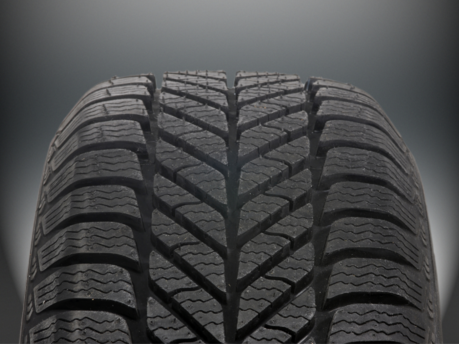Your Guide To Winter Tyres
Fitting cold weather tires
Darker evenings mean that the colder weather is coming, and with it comes the challenging driving conditions that can make journeys challenging. As the parts of our car in contact with the road, tyres are particularly sensitive to the change in temperature, as it’s their job to keep you on the straight and narrow. Luckily, there are steps you can take to arm your car with the grip it needs when things get icy, and winter tyres are at the top of the list.
Swapping regular tyres to winter tyres is a common way to tackle winter driving conditions, such as rain, wet leaf litter, ice, and snow. So how important is this winter maintenance?
Why get winter tyres?
Winter road conditions come with extra risk, so you’ll want to be as prepared as possible when heading out into wet, leaf-covered, icy, or snowy roads. Winter tyres take extra steps to maximise your vehicle’s ability to handle these conditions, thanks to their design. It also means that you’ll get through your summer tyres at a slower rate too - win-win!
How do your winter tyres work?
Winter tyres are softer than the tyres you’d typically find on a car during the warmer months, and this is so that they can gain a better grip on the road; harder tyres are more likely to skid off if the opportunity presents itself.
In addition to the softer materials used, they are also manufactured with extra deep grooves (known as sipes) in the tyre tread, to maximise that grip in a slippery situation. They’re also home to a vibrating rubber block, which moves to shake debris (and snow) from the tyres that would otherwise clog a tyre, and bog it down when you need its performance most.
What different tyre options are there?
The existence of winter tyres suggests that summer ones are also available, which they are. But you’re also able to purchase all-weather tyres too, which can turn their sipes to anything. So what’s the difference between winter tyres, summer tyres, and all-purpose tyres?
Winter tyres
That softer compound that we’ve already mentioned is a defining feature of these seasonal car parts, with a deeper tread to make them as grippy as they can possibly be.
Summer tyres
Summer tyres tend to be made of firmer stuff, and are best suited to road conditions that remain dry and warm.
All-weather tyres
These tyres are developed with a tread that sits in between that of summer and winter tyres, adapting to wet, icy roads as well as dry conditions.
How should you store your winter tyres?
As you can probably guess, for at least 6 months of the year, you’re not actually using your winter tyres. While they’re off your car, they should be kept in a clean, well-ventilated environment; somewhere that’s not too hot or too cold. Taking careful steps to store your tyres correctly will keep them at optimum performance when the weather turns nasty.
We can help with winter tyres in Glastonbury
If you regularly hit the road over winter, it would be wise to consider winter tyres as an investment, not only in the performance of your car, but the safety of it too. We can help you with winter tyres here at our service centre in Glastonbury - get in touch with Avalon Motor Company today to find out more.





